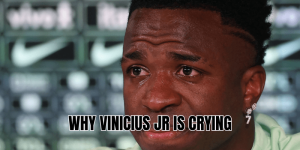In this article, BraeckBall will uncover the real reasons why did Johan Cruyff retire, at both international and club level. Cruyff’s exits were never simple — driven by a mix of personal safety, disillusionment, financial issues, and a belief that some values were more important than glory.
Cruyff’s apparent retirement from international football (1977)
The decision
Johan Cruyff formally retired from playing for the Netherlands national team in October 1977, after helping his country qualify for the 1978 FIFA World Cup. He was 30 years old at the time.
What drove him to quit
Several intertwined reasons:
- Attempted kidnapping: Cruyff and his family were victims of a break-in at their Barcelona home, during which he claimed both he and his wife were tied up, with a gun involved. This event shook him deeply and shifted his priorities.
- Family concerns and safety: Living under threat weighed heavily. Cruyff later said that, to play in a tournament like the World Cup, one needs to be “200% okay” — including emotionally and mentally.
- Other values beyond the pitch: Respect for what was happening off the field, for his family’s peace of mind, and perhaps disillusionment with political or moral dimensions of international tournaments.
His club career and final retirement (1984)
A brief “first” retirement and return
Cruyff also entertained retirement around 1978, soon after stepping back, financial setbacks — bad investments, including a pig farm scheme — and other motivations made him return to playing. After being away, he joined the Los Angeles Aztecs (1979) in the NASL, then the Washington Diplomats, a spell at Levante in Spain, and then back to Ajax before ending with Feyenoord.
Final retirement from playing
- Date & last match: Cruyff officially retired from club football on 13 May 1984, after a season with Feyenoord. His last game was a match against PEC Zwolle.
- Reasons behind retiring then:
- Age and physical decline: By 1984 Cruyff was in his mid-30s, and like all players his physical capabilities were diminishing.
- Not being in club planning at Ajax: After Ajax decided not to renew his contract, he felt no longer part of their plans and sought success elsewhere, which he found with Feyenoord. When that chapter closed, it was a natural time to walk away.
- Desire to move into coaching and creating legacy: Cruyff had already exhibited football intelligence beyond just playing — he was developing ideas, philosophies. Retirement.
Common misconceptions and clarifications
- He “retired at 31”: Sometimes people say Cruyff planned to retire at 31. While he did step back at about that age (from international duty and left Barcelona period), he came back, so the “retire at 31” phrase doesn’t show the full story.
- Political protest: Some claim Cruyff refused to play the 1978 World Cup due to political opposition to Argentina’s military regime. While politics and morals may have played a role, what Cruyff himself emphasized later was the kidnapping incident and personal safety.
The legacy of his retirement
When Cruyff left the field for good in 1984, he had already built a legendary legacy:
- Multiple Ballon d’Or titles, European Cups, domestic leagues.
- A vision of “Total Football” that influenced coaching and tactics for decades.
- After retirement he went into management (notably with Ajax and Barcelona), pushing his ideas even further.
Conclusion
The question of why did Johan Cruyff retire does not have one simple answer. He stepped away from international football in 1977 largely due to threats to his family’s safety and a desire to protect what really mattered to him. Then, after returning to club football for several seasons post-1978, he officially hung up his boots in 1984 when age, changing club roles, and his growing ambition off the pitch made himself ready for a new chapter.
If you’re curious about what Cruyff did after retirement — how he became one of the greatest managers and philosophies in football — or want his stats, match stories, or comparisons with other greats, BraeckBall has you covered.


